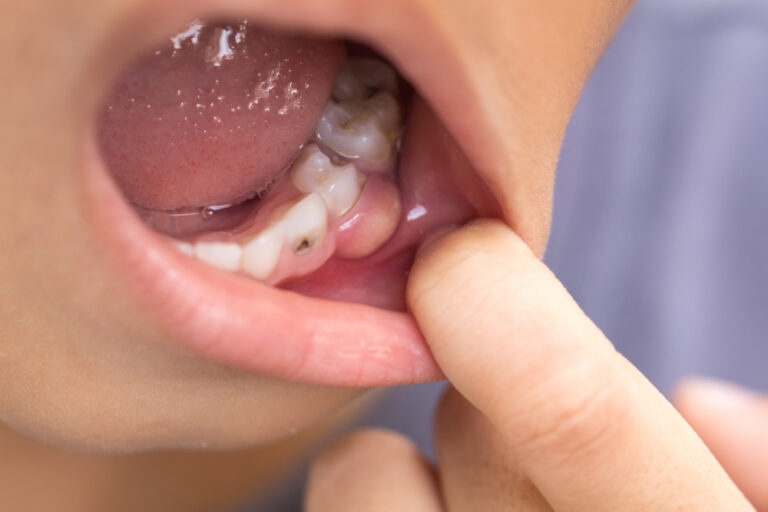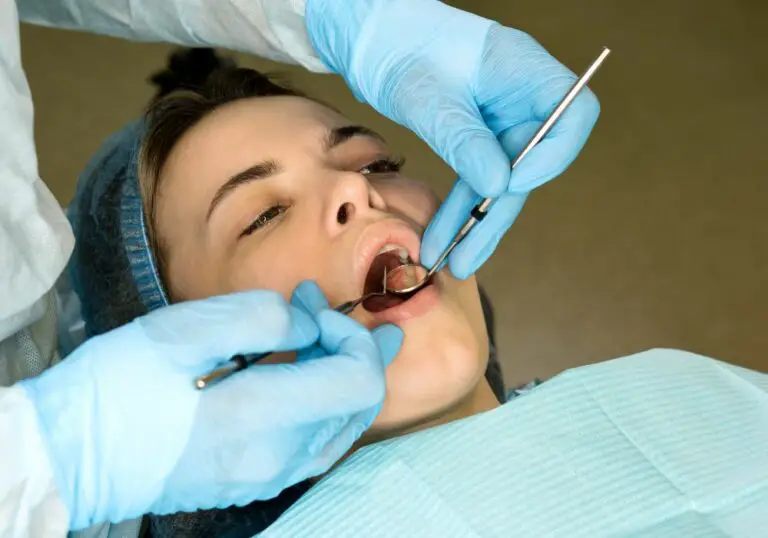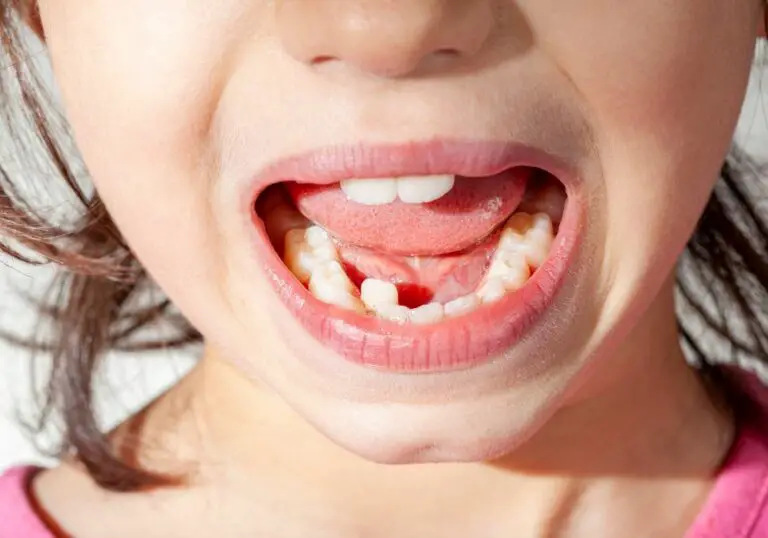Do yellow teeth age you? It’s a question that many people ask themselves as they notice their teeth becoming discolored over time. While yellow teeth may not necessarily be a sign of poor oral health, they can certainly affect your appearance and make you feel self-conscious. But does having yellow teeth actually make you look older?
As you age, your teeth naturally become more yellow due to changes in the structure of your teeth. The enamel on your teeth thins over time, revealing the yellowish dentin underneath. Additionally, lifestyle factors such as smoking, drinking coffee or tea, and consuming certain foods can also contribute to yellowing teeth. It’s no wonder that many people associate yellow teeth with aging.
But does having yellow teeth actually age you? While there’s no definitive answer, it’s safe to say that having a bright, white smile can make you look younger and more vibrant. On the other hand, yellow teeth can make you look older and less healthy. So if you’re concerned about the appearance of your teeth, it may be worth considering teeth whitening or other treatments to restore your smile to its former glory.
The Connection Between Yellow Teeth and Aging
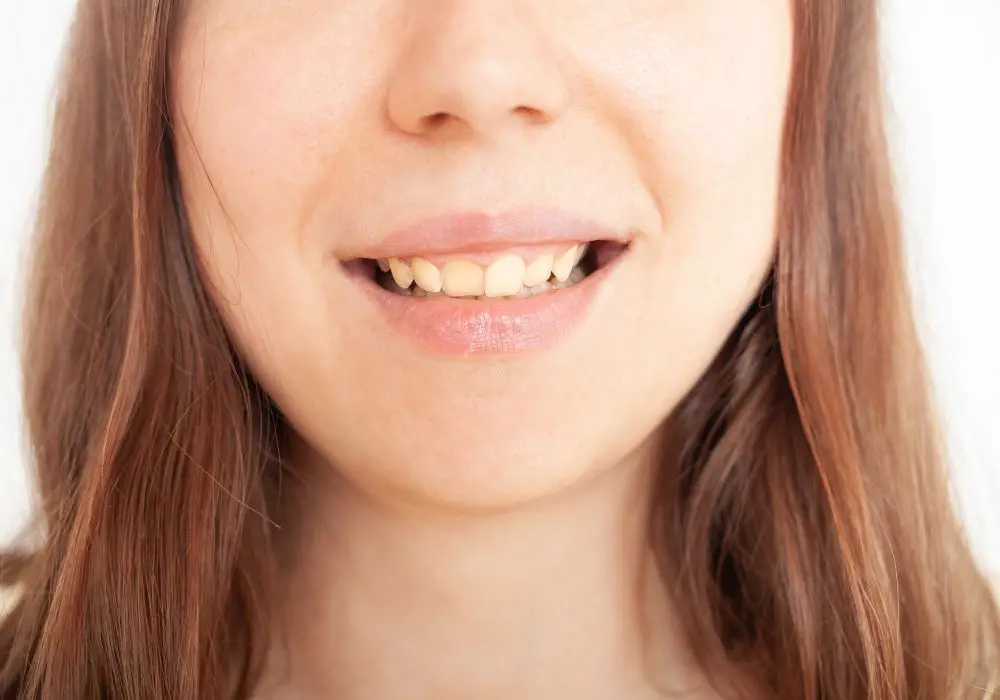
As you age, you may notice that your teeth are not as white as they used to be. Yellow teeth can make you feel self-conscious and may even make you look older than you actually are. In this section, we will explore the connection between yellow teeth and aging.
Perception of Age
Your teeth can play a significant role in how old you look. As you age, your teeth naturally become more yellow or discolored. This discoloration can make you look older than you actually are. According to a study published in the Journal of the American Dental Association, people with whiter teeth are perceived to be younger than those with yellow or discolored teeth.
Intrinsic and Extrinsic Stains
There are two types of stains that can cause yellow teeth: intrinsic and extrinsic. Intrinsic stains are caused by factors inside the tooth, such as genetics, medications, or trauma. Extrinsic stains are caused by external factors, such as smoking, drinking coffee or tea, or poor oral hygiene.
Intrinsic stains are more difficult to remove than extrinsic stains. Professional teeth whitening treatments may be able to remove some intrinsic stains, but not all of them. In some cases, veneers or bonding may be necessary to cover up intrinsic stains.
Extrinsic stains can often be removed with regular brushing and flossing, as well as professional teeth cleaning. Avoiding smoking and limiting your intake of coffee, tea, and red wine can also help prevent extrinsic stains from forming.
In conclusion, yellow teeth are a common sign of aging. Intrinsic and extrinsic stains can both cause yellow teeth, but extrinsic stains are more easily preventable and treatable. If you are concerned about the appearance of your teeth, talk to your dentist about your options for whitening or covering up intrinsic stains.
Causes of Yellow Teeth
There are several factors that can contribute to yellow teeth. Some of these causes are within your control, while others are not. Here are two main causes of yellow teeth:
Diet and Lifestyle Choices
Certain foods and drinks can cause yellowing of the teeth, especially if consumed regularly. These include:
- Coffee and tea
- Red wine
- Colas and other sugary drinks
- Acidic foods, such as citrus fruits and tomatoes
- Tobacco products, including cigarettes and chewing tobacco
In addition to diet, poor oral hygiene can also lead to yellowing of the teeth. If you don’t brush and floss regularly, plaque can build up on your teeth, causing them to appear yellow.
Medications and Illnesses
Certain medications and illnesses can also cause yellowing of the teeth. These include:
- Antibiotics, such as tetracycline and doxycycline
- Antihistamines and antipsychotic medications
- Chemotherapy and radiation treatments
- Liver disease and other medical conditions that affect the liver
- Certain genetic disorders, such as dentinogenesis imperfecta
If you suspect that your yellow teeth are caused by a medication or illness, it’s important to speak with your doctor or dentist. They can help you determine the best course of action to address the issue.
Overall, there are several causes of yellow teeth, and it’s important to identify the underlying cause in order to effectively treat the problem. By making changes to your diet and lifestyle, practicing good oral hygiene, and seeking medical advice when necessary, you can help prevent and treat yellowing of the teeth.
Impact of Yellow Teeth on Self-Esteem and Social Interactions
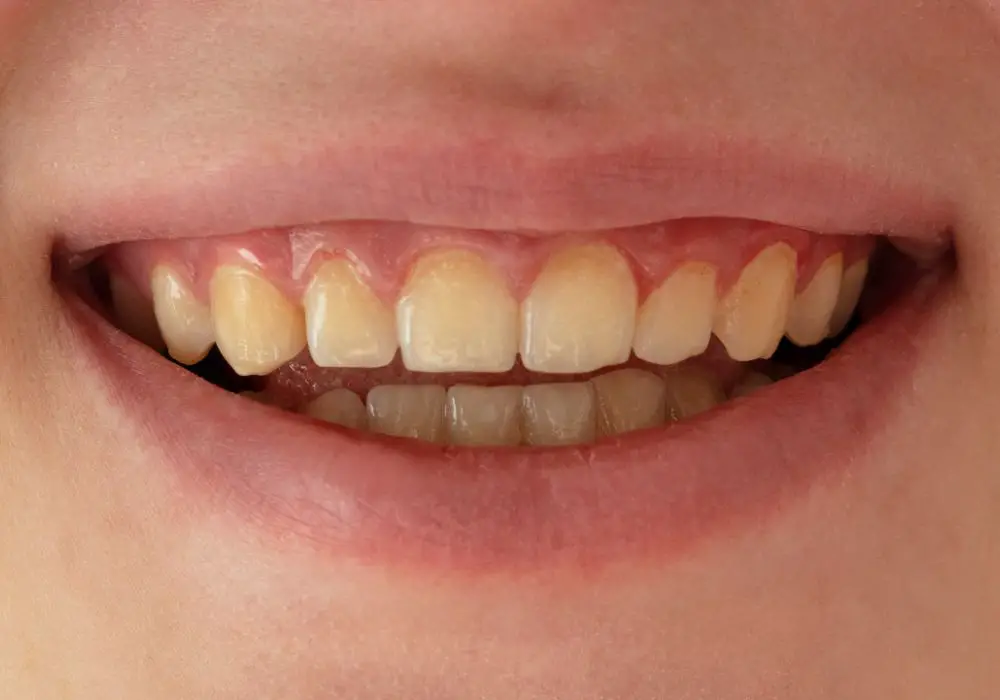
Your smile is one of the first things people notice about you. Yellow teeth can make you feel self-conscious and affect your confidence. Studies have shown that people with discolored teeth are more likely to experience low self-esteem and social anxiety.
Having yellow teeth can also affect how people perceive you. In one study, people rated individuals with whiter teeth as more attractive, successful, and confident than those with yellow or stained teeth. This can have an impact on your social interactions, including job interviews and dating.
It’s important to note that yellow teeth can be caused by a variety of factors, including genetics, aging, and lifestyle habits such as smoking and consuming certain foods and drinks. However, there are ways to improve the appearance of your teeth and boost your self-esteem.
One option is to try at-home whitening treatments, such as whitening toothpaste or strips. These products can help remove surface stains and brighten your teeth. However, it’s important to use them as directed and not overuse them, as this can lead to tooth sensitivity and damage.
Another option is to visit a dentist for professional teeth whitening. This can be a more effective and longer-lasting solution, as dentists use stronger bleaching agents and can customize the treatment to your specific needs.
Overall, yellow teeth can have a negative impact on your self-esteem and social interactions. However, there are ways to improve the appearance of your teeth and boost your confidence.
Prevention and Treatment of Yellow Teeth
Yellow teeth can be prevented and treated with proper oral hygiene practices and professional dental treatments. Here are some tips to help you keep your teeth white and healthy.
Oral Hygiene Practices
Maintaining good oral hygiene is the key to preventing yellow teeth. Here are some practices you can adopt:
- Brush your teeth twice a day with fluoride toothpaste.
- Floss daily to remove plaque and food particles from between your teeth.
- Use mouthwash to kill bacteria that cause bad breath and tooth decay.
- Avoid smoking and using tobacco products, as they can cause yellow teeth and other dental problems.
- Limit your intake of coffee, tea, and red wine, as they can stain your teeth.
- Drink plenty of water to keep your mouth hydrated and wash away food particles.
Professional Dental Treatments
If your teeth are already yellow, professional dental treatments can help whiten them. Here are some options:
- Teeth whitening: This is a popular treatment that can be done in a dental office or at home using a whitening kit. It involves applying a bleaching agent to your teeth to remove stains and discoloration.
- Dental bonding: This treatment involves applying a tooth-colored resin to your teeth to cover up stains and discoloration.
- Veneers: These are thin, custom-made shells that are placed over your teeth to improve their appearance. They can be used to cover up yellow teeth and other dental imperfections.
It’s important to note that not all dental treatments are suitable for everyone. Your dentist can help you determine which treatment is best for you based on your dental history and current oral health.
The Role of Regular Dental Check-Ups
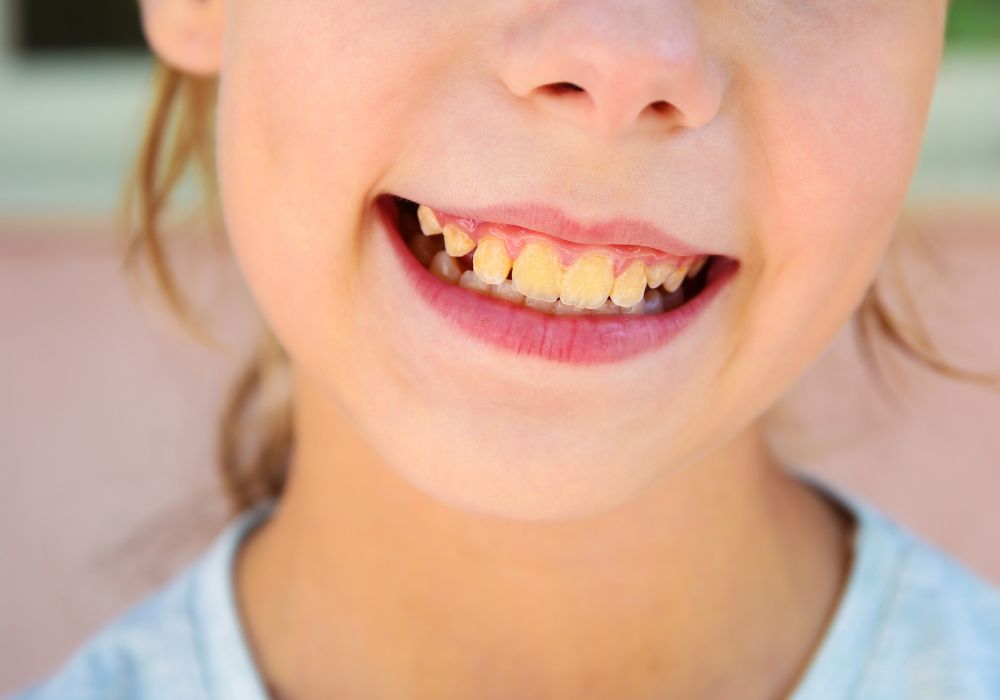
Regular dental check-ups play a crucial role in maintaining good oral health. During a dental check-up, the dentist examines your teeth, gums, and mouth to detect any signs of dental issues such as cavities, gum disease, and oral cancer. Here are some reasons why regular dental check-ups are important:
Early Detection of Dental Issues
Regular dental check-ups can help detect dental issues early before they become more serious and require more invasive treatments. For instance, if your dentist detects a small cavity during a check-up, they can treat it with a simple filling. However, if you ignore the cavity and let it progress, it may require a root canal or even extraction.
Preventive Care
Dental check-ups also include preventive care, such as teeth cleaning and fluoride treatment. Teeth cleaning helps remove plaque and tartar buildup that can cause tooth decay and gum disease. Fluoride treatment helps strengthen your teeth and prevent cavities.
Overall Health
Good oral health is linked to overall health. Poor oral health can lead to serious health issues such as heart disease, stroke, and diabetes. Regular dental check-ups can help prevent these health issues by maintaining good oral health.
Personalized Dental Care
During a dental check-up, your dentist can provide personalized dental care based on your specific needs. For instance, if you have sensitive teeth, your dentist can recommend special toothpaste or other treatments to help alleviate your symptoms.
In conclusion, regular dental check-ups are essential for maintaining good oral health and preventing serious dental issues. Make sure to schedule a dental check-up at least twice a year or as recommended by your dentist.
Frequently Asked Questions
How can I whiten my teeth?
There are several ways to whiten your teeth, including using whitening toothpaste, whitening strips, or visiting a dentist for professional whitening treatments. It is important to note that some methods may be more effective than others, and results may vary depending on the individual.
What causes teeth to turn yellow?
There are several factors that can cause teeth to turn yellow, including age, genetics, poor oral hygiene, certain medications, and consuming foods and drinks that are high in sugar or acidic. Additionally, smoking and tobacco use can also contribute to yellowing teeth.
Are there any effective teeth whitening methods?
Yes, there are several effective teeth whitening methods available, including professional whitening treatments, over-the-counter whitening products, and natural remedies like oil pulling. It is important to consult with a dentist to determine the best whitening method for your individual needs.
Can yellow teeth be a sign of vitamin deficiency?
Yes, yellow teeth can be a sign of vitamin deficiency, specifically a lack of vitamin D and calcium. These vitamins are important for maintaining strong and healthy teeth, and a deficiency can lead to weakened enamel and yellowing teeth.
Is it possible to whiten dentin?
It is possible to whiten dentin, but it can be more difficult than whitening enamel. Dentin is the layer beneath the enamel and is naturally yellow in color. However, certain whitening treatments and products can penetrate the enamel and whiten the dentin as well.
At what age do teeth typically start to yellow?
Teeth can start to yellow at any age, but it is more common as you get older. This is because the enamel on your teeth naturally wears down over time, exposing the yellow dentin layer beneath. Additionally, certain lifestyle habits like smoking and poor oral hygiene can accelerate the yellowing process.


